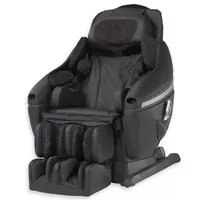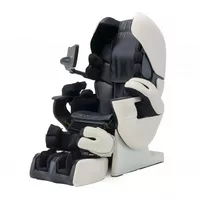Highlights
Pioneer of Shiatsu-style automated massage chairs since 1962
Known for iconic models like DreamWave and Robo-Therapist
Patented full-body stretching and side-to-side swaying
Quiet, rhythmically soothing roller mechanics
Therapeutic design philosophy rooted in traditional acupressure
Made in Japan with long service life and clinical-grade alignment
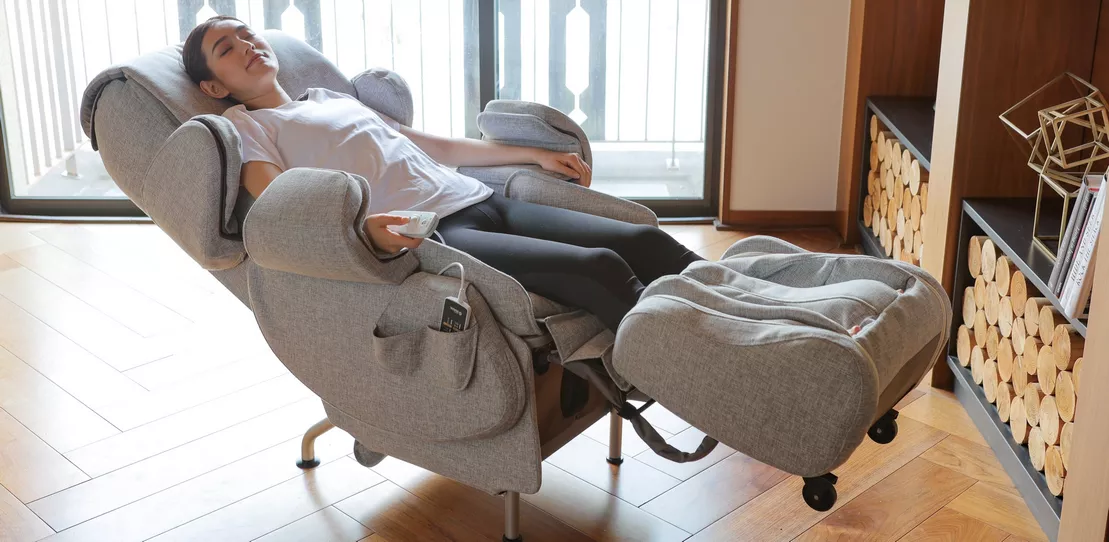
Inada, based in Osaka, Japan, is often credited with pioneering the modern massage chair. With a legacy dating back to the 1960s, it has focused on chiropractic-style techniques, clinical precision, and the art of rhythm and pressure rather than commercial feature overload.
Inada chairs aren’t flashy. They’re built like instruments—each movement slow, deliberate, and fine-tuned. Current models like the DreamWave M.1 and Robo-Therapist 7 reflect decades of therapeutic R&D and still echo the brand’s original philosophy: targeted relief, not roller theatrics.
Product Selection
3.6 /5
Inada’s lineup includes legacy models like the DreamWave M.1 and advanced chairs like the Robo-Therapist 7. There’s no ultra-budget option or compact recliner. The brand focuses only on mid and high-tier medical-use chairs, designed for longevity and clinical application.
This narrowed scope supports the brand’s purpose—but may limit its appeal to users looking for stylistic diversity or multiple sizing options.
| Feature / Model |
No direct equivalent in this category |
DreamWave M.1 |
Robo-Therapist 7 |
| Price Range | N/A | $8,000 | $11,000 - $12,000 |
| Roller System & Track | - | 3D rollers on S-Track | AI 4D rollers on SL-Track |
| Depth / Intensity Levels | - | Gentle 3D with multiple levels | Adaptive 4D AI with real-time adjustment |
| Body-Scan Technology | - | Full spine and shoulder scan | AI-powered full-body mapping |
| Auto Programs | - | 16 auto programs | 12+ programs with adaptive learning |
| Airbag Zones & Count | - | 100 airbags full-body | 50+ airbags including hips, calves, and shoulders |
| Heat Zones | - | Lumbar and seat heating | Full-body heat (lumbar, seat, foot) |
| Foot & Calf Massage | - | Dual foot rollers + calf air massage | Heated foot rollers + calf kneading |
| Zero-G & Stretch | - | DreamWave swing + recline | Stretch + AI-controlled position shifts |
| Space-Saving Recline | - | Requires 10 in wall clearance | Compact recline system |
| User Size Range | - | Up to 6'2" and 275 lb | Up to 6'4" and 285 lb |
| Warranty (Parts / Labor) | - | 3 yr parts and labor | 5 yr parts and labor |
| Unique Extras | - | DreamWave seat motion, “youth” mode | Voice assistant, memory, AI learning algorithm |
Customer Support & Warranty
4.2 /5
U.S. service is handled by authorized distributors, with 3 years on parts, 1 year labor, and 5 years on the frame standard. Inada’s reliability means fewer claims, and most users report consistent, professional communication.
Because parts are imported from Japan, shipping may take longer in some cases, but fulfillment and instructions are typically thorough and transparent.
Build Quality & Durability
4.7 /5
Every Inada chair is hand-finished in Japan, using high-grade motors, gear sets, and upholstery. Components are built for multi-year daily use, and the chassis and massage arms retain calibration for long periods without service.
Wear parts like air pumps and control boards are replaceable, and service life often exceeds 10 years with routine use. The tactile quality is evident from the first session—it feels like equipment, not furniture.
Massage Variety
4.3 /5
Inada chairs focus heavily on full-body Shiatsu, with programs that replicate real acupressure movements using slow-rolling, deep-kneading techniques. The DreamWave M.1 uses a wide seat-tilt system to create a swaying motion that mimics the hands of a practitioner, while the Robo-Therapist 7 applies variable-depth rollers along the spine with programmable pressure.
Unlike brands that rely on intensity for effect, Inada’s massage feels therapeutically calm, with sustained pressure and long holds, ideal for relaxation or back realignment—not brute-force muscle work.
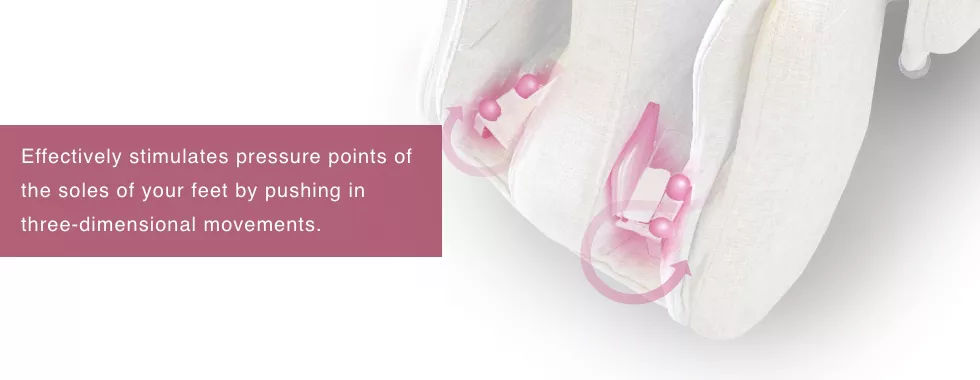
Programs Variety
4.2 /5
Inada chairs include 8–16 auto programs, depending on the model, with manual control for intensity, region, and roller width. Programs are purpose-built: spinal alignment, postural correction, shoulder mobility, etc. There’s little fluff—each mode has a therapeutic endpoint.
The UI feels minimal, but consistent. Users who prefer “preset simplicity” will find the approach calming, though it may feel underwhelming to those expecting app-style interactivity.
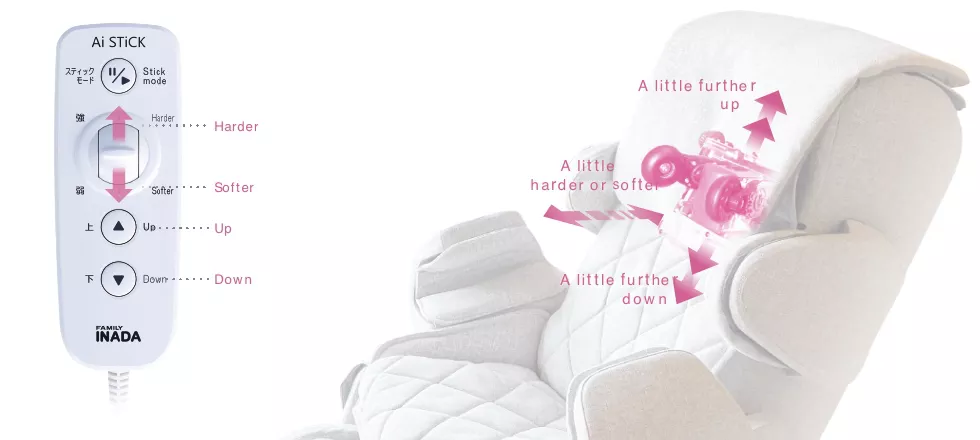
Cost & Affordability
3.5 /5
Inada chairs sit solidly in the premium therapy tier. The investment reflects engineering integrity and purpose-built massage design, not flashy spec sheets. If what you want is restorative pressure, orthopedic relief, and long-term dependability, the cost matches the mission.
But for buyers expecting big screens, LED lighting, or a roller coaster of features, these chairs will feel reserved—and intentionally so.
Technology & Wellness Extras
3.9 /5
Inada chairs include lumbar and seat heat, multi-layer air systems, and foot/calf massage, but there’s no smart remote, app, or voice command. That’s deliberate—simplicity is part of the therapeutic experience.
Newer models include multi-language voice prompts and custom massage profiles, but most extras are designed around function, not entertainment.
Body Coverage & Adjustability
4.4 /5
Roller paths extend from the neck to mid-glutes using S-Track systems, with extensive airbag distribution covering the shoulders, waist, arms, calves, and feet. The Robo-Therapist 7 introduces intelligent air modulation to adapt to user tension zones, while foot modules apply rhythmic kneading and acupressure nodules.
While the track doesn’t extend into a full L-shape, the overall coverage still feels complete—especially for upper back and midsection targeting.
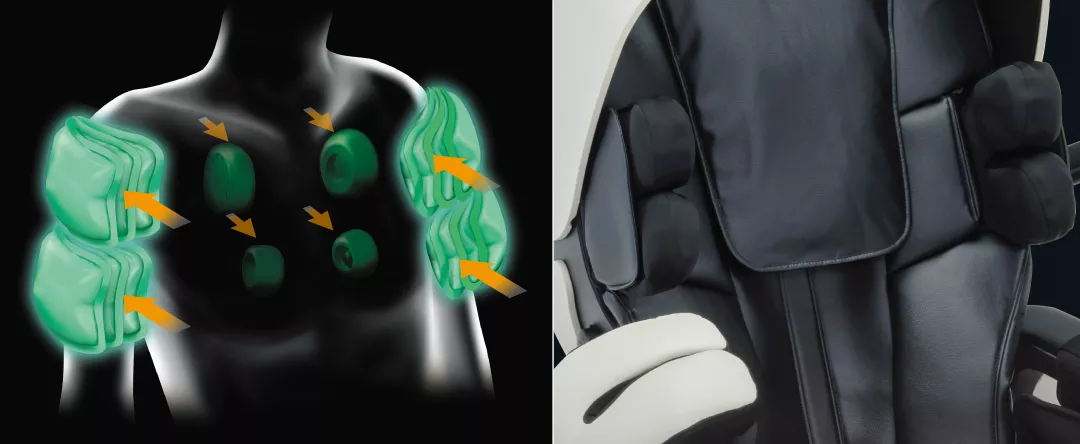
Comfort & Ergonomics
4.5 /5
The entire chair structure is built around orthopedic principles. Recline angles are modest but posture-preserving. The DreamWave system gently lifts and rocks the pelvis to decompress the spine. Chairs conform to users from 5’0" to 6’4", and seats are designed to hold the lumbar in neutral alignment during all programs.
Materials feel premium, though styling is subdued. The feel is more clinical than indulgent, but long sessions remain extremely comfortable—especially for older users or those with spinal sensitivity.
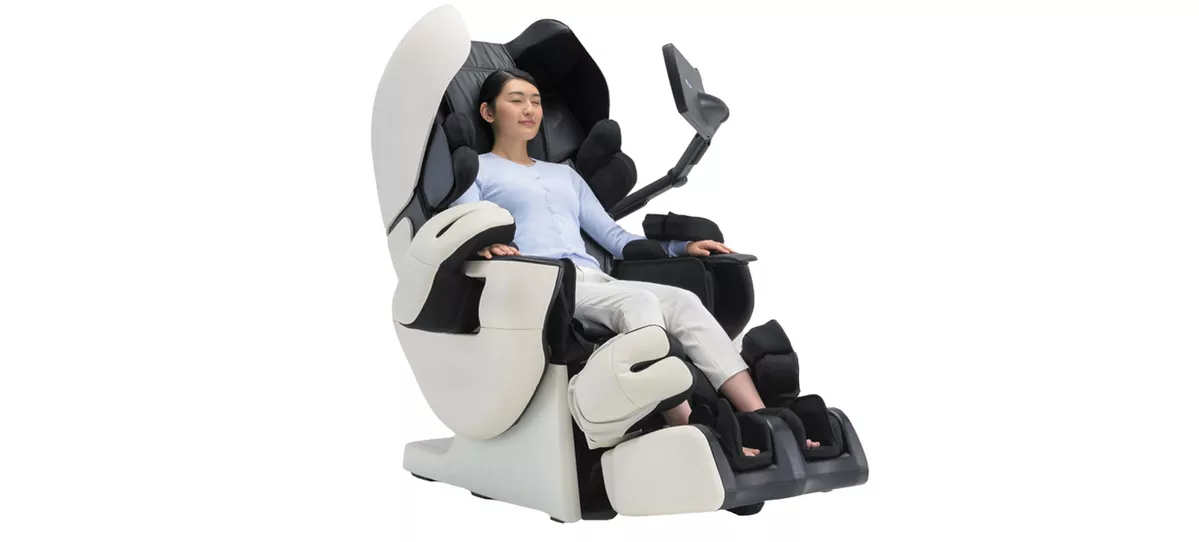
Conclusion
Inada massage chairs are for users who value peace, structure, and lasting relief. With every movement modeled on traditional manual therapy and every feature designed to support spinal alignment, these chairs aren’t built to entertain. They’re built to restore and rebalance. If you want a chair that feels more like a skilled practitioner than a machine—and you value quiet authority over sensory spectacle—Inada delivers a masterclass in therapeutic focus.



